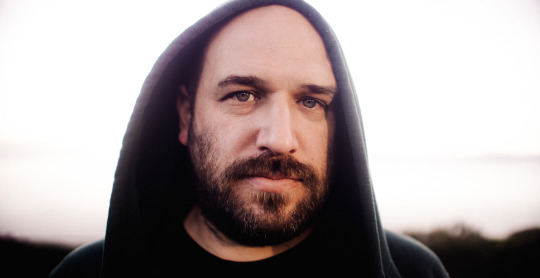
The following piece is a partial excerpt from former Believer managing editor Casey Jarman’s first book, Death: An Oral History, out October 25 with Zest/Pulp books. The book features eighteen interviews: among the subjects are a hospice volunteer, a funeral industry watchdog, a surviving twin, a former death row warden, philosopher Simon Critchley, and cartoonist Art Spiegelman.
David Bazan on Death
Stories about leaving one’s faith always seem to appeal to me more than stories of conversion. How does a person traverse a chaotic universe where they once saw order? How do you replace that huge absence in your life? Does some small part of you always remain faithful?
The first time I ever saw David Bazan, it was late afternoon. He was surrounded by a half-dozen fans outside the rock club where his band Pedro the Lion was scheduled to play that night. He was deep in conversation, not about records or touring life, but about perhaps the least rock and roll subject on earth: the Bible.
David Bazan’s shifting faith has always been present on his albums. His early songs work like modern parables; his best albums with Pedro the Lion take a cynical view of modern Christianity while retaining faith in the Bible’s teachings. Starting with 2009’s Curse Your Branches, the Seattle-based musician’s songs have detailed his creeping disbelief. That album seemed to meditate mournfully over the prospect of losing God, but overall, Bazan’s road away from Christianity has largely been a surprisingly hopeful journey.
Death was not always the focus of discussion when I met Bazan at a dive bar in North Seattle. But it lingers behind just about everything else. For Bazan, learning to live without the promise of an afterlife has led to a rediscovery of the concept of death. That he has faced that redefinition with open arms is unusual and impressive, but then again, Bazan—who has become one of the finest and most respected songwriters of his generation—has never backed down confronting difficult subjects.
—Casey Jarman
AUNT ANNE
The earliest experience with death I can remember was my grandmother’s aunt, who I called Aunt Anne. She had moved from New York to Phoenix to retire. We really had a close relationship. She was quite old. When I was in fourth grade, I was in class, and I asked to go get a drink of water at my school. I was out in the hallway and my dad came up the stairs. I was like, “What are you doing here?” And he said, “I have bad news.” I was kind of devastated. It wasn’t an event that I was expecting to pop up. Like, it...
You have reached your article limit
Sign up for a digital subscription and continue reading all new issues, plus our entire archives, for just $1.50/month.
Already a subscriber? Sign in




